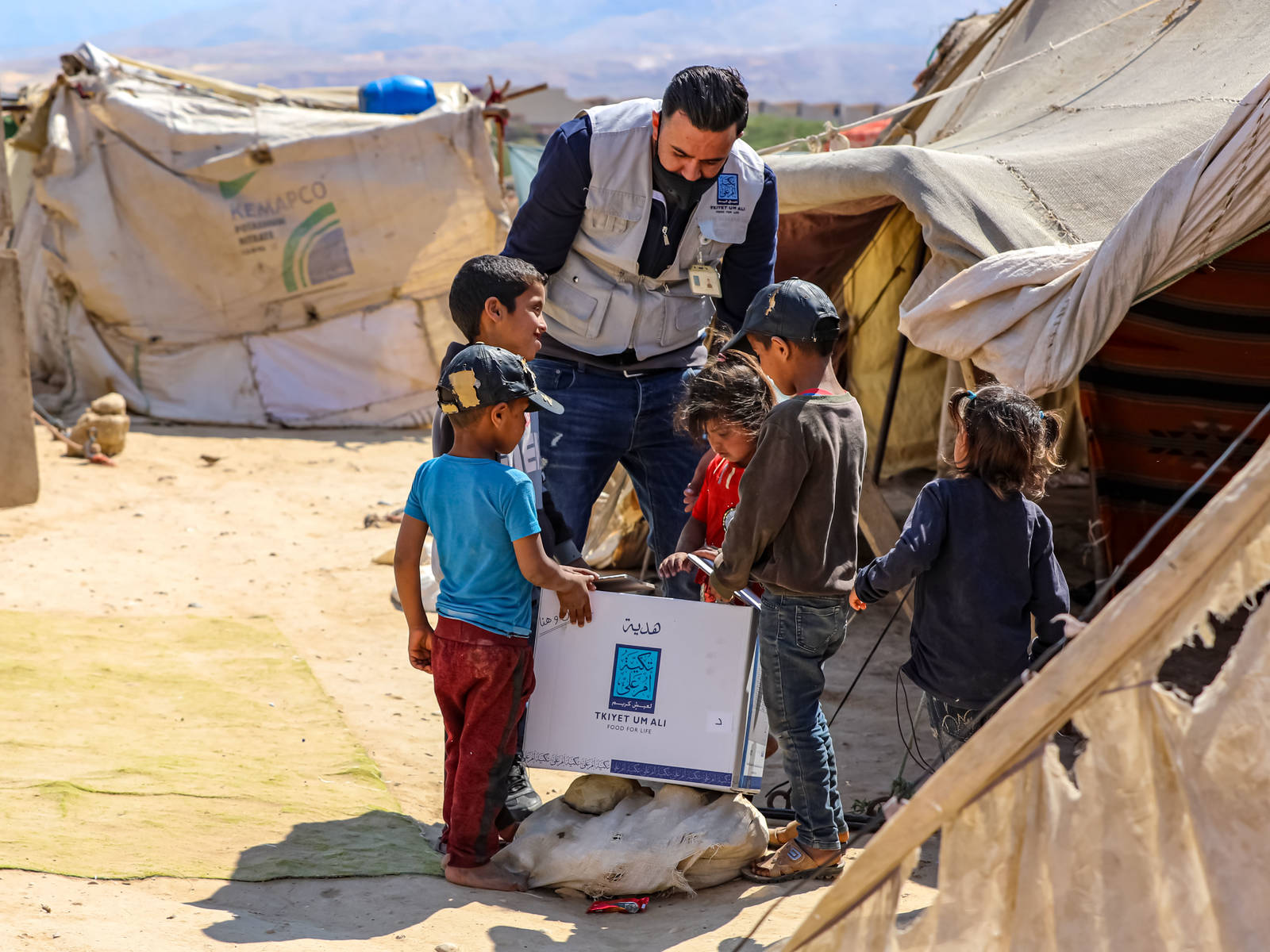Your Comprehensive Guide to Udhiyah Rules

What is Udhiyah?
Before discovering the Udhiyah rules, it is important to understand what Udhiyah is. So, what is Udhiyah?
Udhiyah is the animal sacrifice of livestock (camels, cows and sheep) that Muslims make during Eid Al Adha days. Muslims doing Udhiyah may not sacrifice (slaughter) animals themselves but instead let a specific organization, charity or individual slaughter the animal on their behalf.
Below are more details on this.
Is Udhiyah Obligatory or Sunnah?
Islam states that Udhiyah is Sunnah mu'akkadah (a confirmed Sunnah) for Muslims who can afford it. So, Udhiyah is not obligatory but recommended. However, Udhiyah is Sunnah mu'akkadah only for Muslims who meet certain conditions agreed upon by Muslim scholars, and they are as follows:
- Islam: Udhiyah is expected only from Muslim people.
- Sanity: Muslims lacking sanity are not required to do Udhiyah.
- Freedom: Enslaved people, even if Muslims and sane, are not required to do Udhiyah.
- Financial Capability: Muslim scholars have different opinions about what makes a Muslim financially capable.
For instance, in the Maliki Madhab, it means to have the money for the sacrifice without needing it for other needs. As for the Hanbali Madhab, a financially capable Muslim is one who can earn money for the sacrifice, even by borrowing it, and this is only in case he can give the money back to the lender.
It is worth noting that some conditions are not agreed upon among the Muslim scholars, some of which are:
- Adulthood: In Al-Shafi'i Madhab, the Muslim doing Udhiyah must be an adult, but it is not a must in Al-Maliki Madhab.
- Not Performing Hajj: In Al-Maliki Madhab, Muslims performing Hajj are not required to do Udhiyah out of easing Hajj for them. However, other Madahib did not make this a condition.
Time of Udhiyah
The time of Udhiyah lasts for 4 days: The Day of Al-Adha, and the following three days, known as Al Tashreeq days (days of Eid).
Specifically, the time of Udhiyah begins after the prayer of Eid Al-Adha and ends with the sunset of the third day of Al Tashreeq days. Muslims cannot slaughter any livestock animals with the intention of Udhiyah upon the end of this period.
Udhiyah Rules
The following are the Udhiyah rules that must be followed in order to do Udhiyah correctly and in a Sharia-compliant way:
- Owning the Udhiyah Legally: It is not permitted to own Udhiyah by stealing it, Haram money or an invalid contract.
- Niyyah: Niyyah (or intention) is an essential Udhiyah rule because it distinguishes Udhiyah in the aims of getting close to Allah from slaughtering animals for other purposes.
- Free of Defects: Udhiyah must be free of defects and disease, so it cannot be blind, one-eyed, or missing an ear, and other defects that we will get into in-depth below.
- Qurbani Age: There is a minimum Qurbani age or Udhiyah age that it must reach, which is one year if the sacrifice is a sheep, with the exception of sheeps 6 - 12 months old and are strong and healthy enough to seem like one year old.
Animals Not to Sacrifice
Certain livestock animals must not be slaughtered and sacrificed, and they are:
- Blind animals, one-eyed, or those that lost more than a third of their eye-sight.
- The overly-thin animals, whose ribs are visible.
- Weak animals that are not able to walk.
- Crippled animals struggling with deficiencies, not allowing them to walk.
- Animals missing one-third of a tail or ear or missing either one entirely.
- Animals with removed horns.
- Animals who haven't grown teeth yet, or those that lost most of their teeth.
Tawkeel In Udhiyah
Tawkeel in Udhiyah means to commission someone, a charity or an organization to do your Udhiyah on your behalf.
You can choose Tawkeel in Udhiyah if you cannot slaughter or in case of being busy or inexperienced with the requirements of Udhiyah. Tawkeel in Udhiyah includes buying the sacrifice, slaughtering it, and distributing its meat.
Muslims who live abroad, especially in foreign non-Muslim countries, tend to let trusted organizations do Udhiyah on their behalf as well.
Are you looking for a trusted organization to do your Udhiyah on your behalf? Tkiyet Um Ali is exactly what you're looking for!
Donate Udhiyah with Tkiyet Um Ali
Tkiyet Um Ali slaughters animals at the Greater Amman Municipality's slaughterhouse during Eid Al-Adha days, and it distributes the meat to the endorsed families. It also slaughters sacrifices in Australia following Sharia on behalf of Muslims. The meat is shipped to Jordan and stored in Tkiyet Um Ali's refrigerated warehouses to be distributed all year round to families struggling with food poverty.
Donate Udhiyah with Tkiyet Um Ali, so it slaughters it and distributes its meat during Eid Al-Adha. The entire process is supervised by a Mufti from the Jordanian General Ifta' Department.
Tkiyet Um Ali has made 237805 sacrifices since 2003, and it has worked ever since on distributing the meat to families in need in Jordan and Palestine through coordination with the Jordan Hashemite Charity Organization, UNRWA and several organizations and charities in Palestine.
